Normal Math Worksheets Activities With Answers for Ages 5-7
6 filtered results
-
From - To
Discover an engaging collection of normal math worksheets tailored for children ages 5 to 7. Our activities are designed to foster essential math skills while keeping learning fun and interactive. Each worksheet features a variety of exercises that cover basic addition, subtraction, pattern recognition, and more, complete with answer keys for easy assessment. Perfect for teachers and parents alike, these resources can enhance classroom instruction or support at-home learning. Encourage your child's confidence and competence in math with fun activities that make learning enjoyable! Explore our range of worksheets today and ignite a passion for math in your young learners!
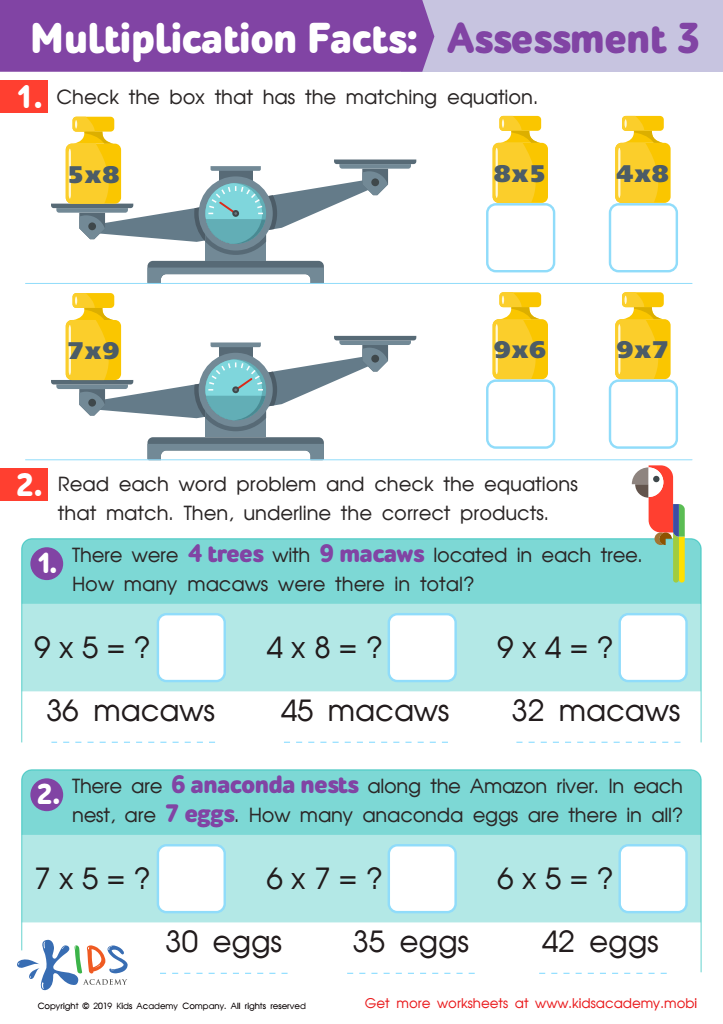

Multiplication Facts: Assessment 3 Worksheet
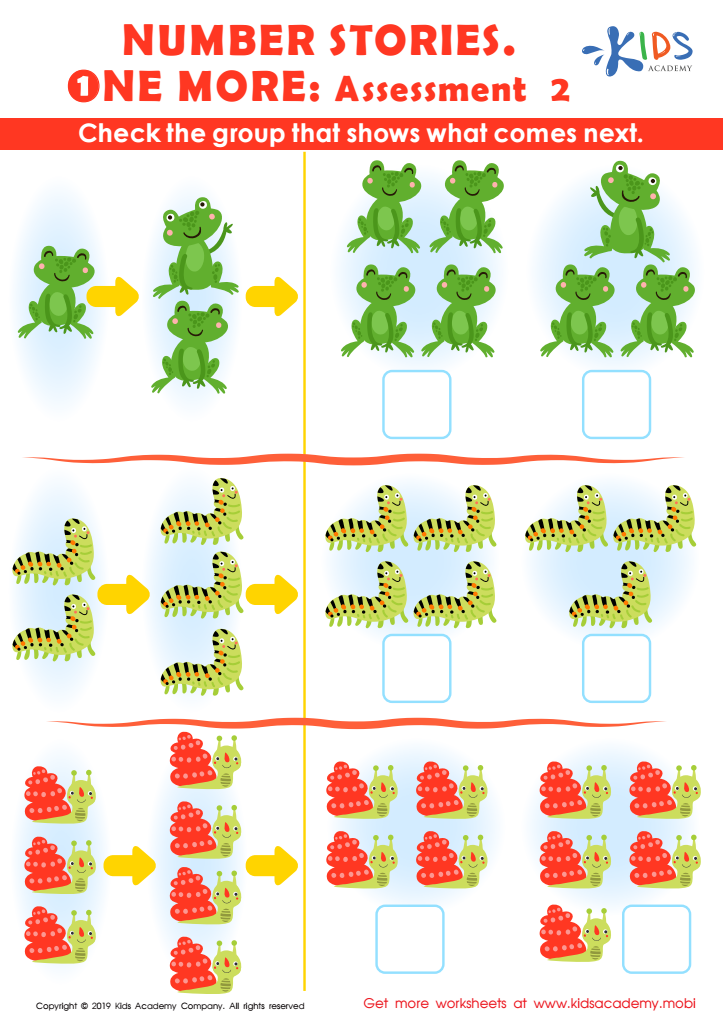

Number Stories One More – Assessment 2 Worksheet
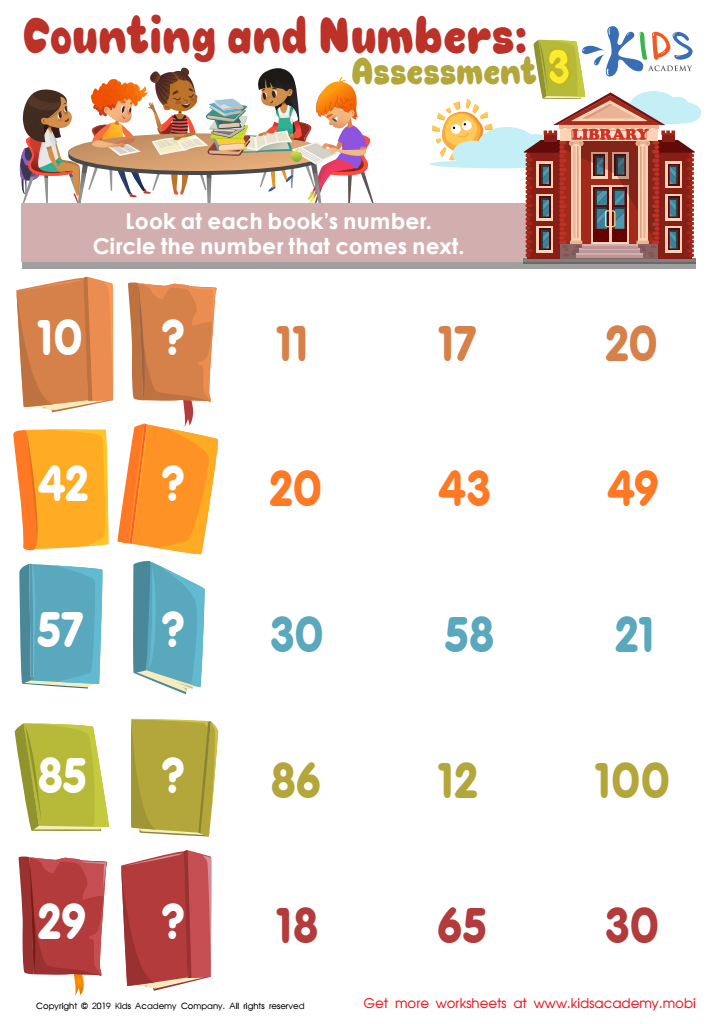

Counting and Numbers: Assessment Worksheet
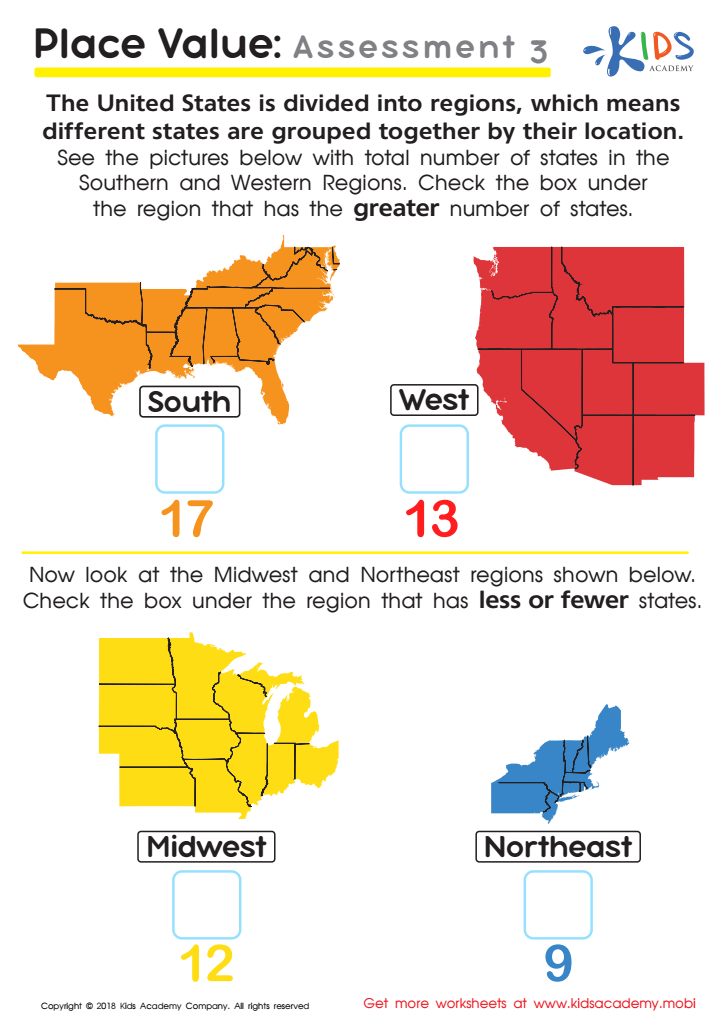

Place Value: Assessment 3 Worksheet


Word Problems: Assessment 2 Worksheet
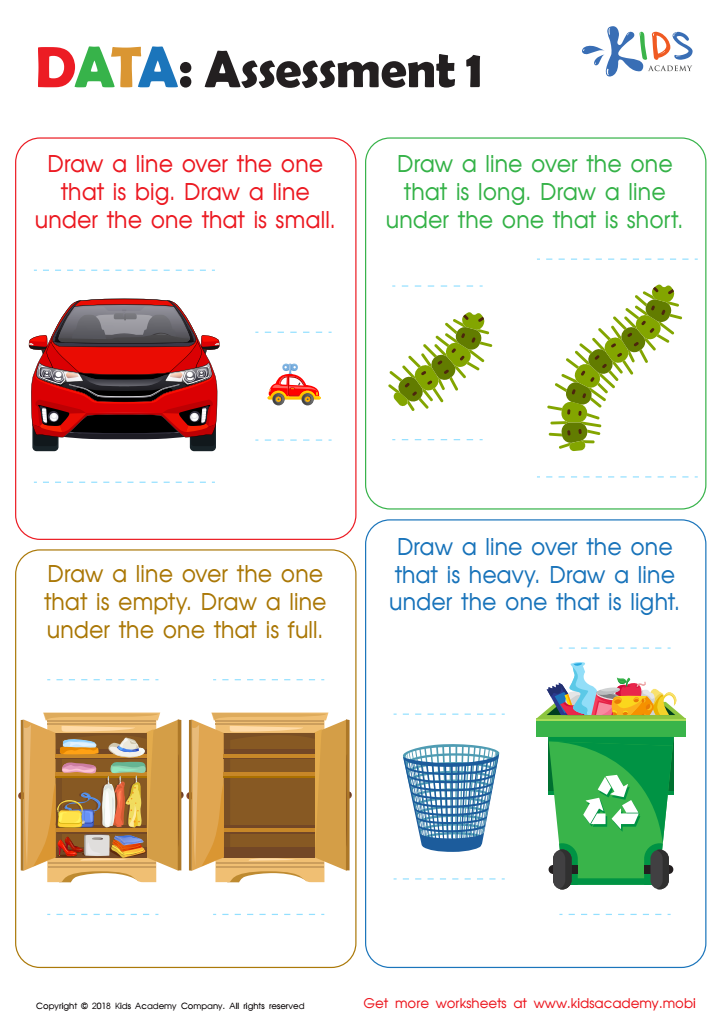

Data: Assessment 1 Worksheet
Parents and teachers should prioritize normal math activities with answers for children aged 5-7 because this age group is critical for establishing a strong foundation in mathematical concepts. At this stage, children are typically transitioning from learning to count to understanding more complex ideas like addition, subtraction, and basic shapes. Engaging in structured math activities helps reinforce these concepts in a fun and meaningful way.
Such activities promote cognitive skills like problem-solving, logical reasoning, and critical thinking. They also enhance fine motor skills through hands-on tasks, such as counting objects or drawing shapes. Furthermore, having access to answers aids both parents and teachers in guiding children's learning effectively, allowing them to identify strengths and gaps in understanding.
Regular math practice fosters confidence and independence in young learners, turning math from a daunting task into an enjoyable challenge. By incorporating these activities into daily routines, caregivers can stimulate curiosity and encourage a positive attitude towards math, setting the stage for ongoing academic success. Ultimately, nurturing mathematical skills at an early age contributes significantly to children's overall development and prepares them for future learning in both math and other subjects.
 Assign to My Students
Assign to My Students





















